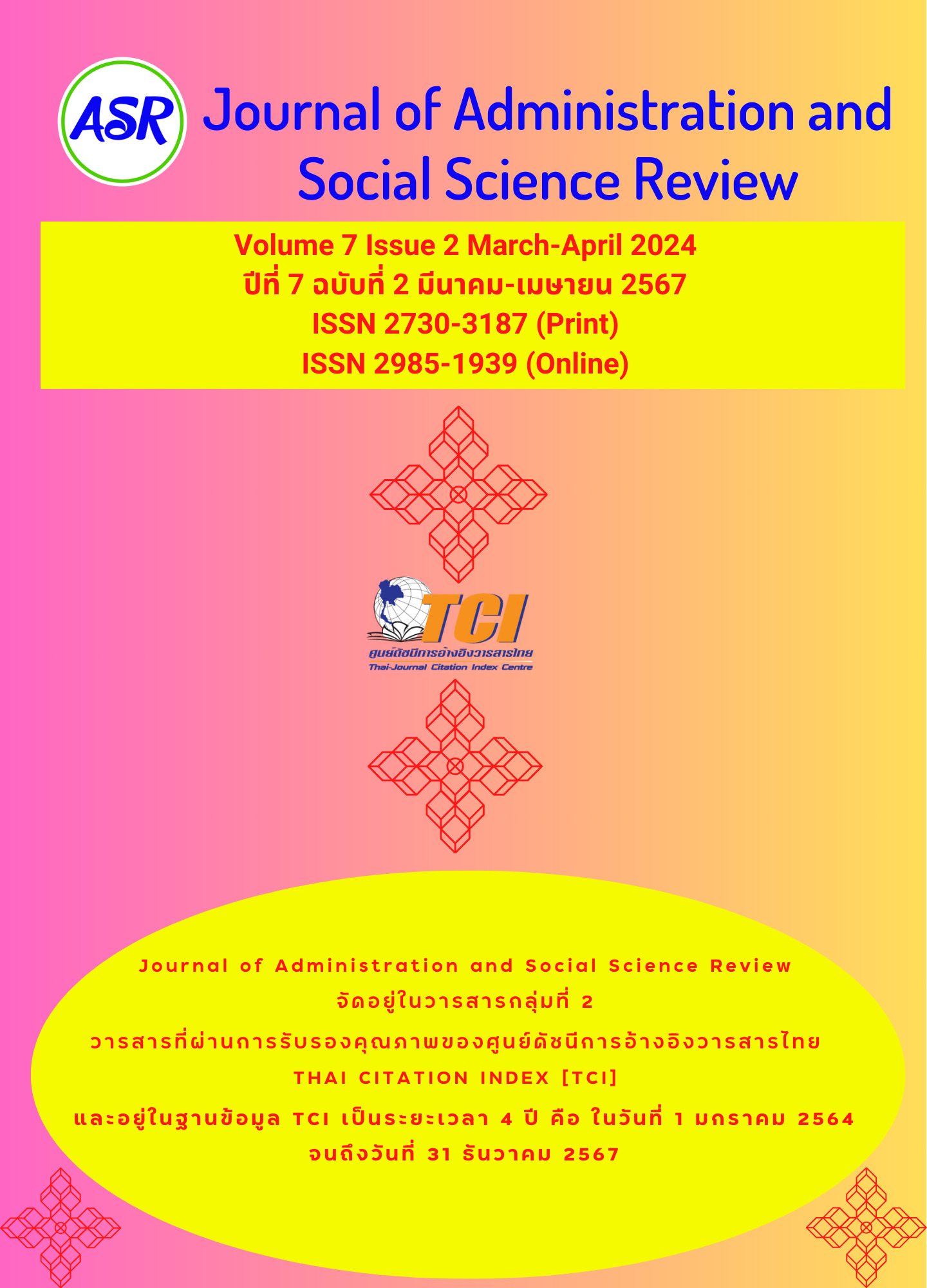Factors Affecting the General Election of Candidates for the House of Representatives 2023, Electoral District 1, Songkhla Province
Keywords:
election, decision, factors influencing votingAbstract
The objective of this research was to study the factors influencing the voting behavior of candidates in the general election for the House of Representatives members in the 1st electoral district of Songkhla province in the general election of 2023. The study also aimed to compare the factors affecting the selection of candidates in the general election of 2023 in the 1st electoral district of Songkhla province. The sample group, calculated by the Yamane formula use, consisted of 400 individuals, and a questionnaire was used as a research tool. Subsequently, statistical analysis was conducted on the data, including percentages, means, standard deviations, t-test, F-test, and Pearson's correlation test.
The study findings revealed that most majority of survey respondents are female, aged between 20-25 years and 41-45 years, with a bachelor's degree, and working as government officials or state enterprise employees, with an average monthly income ranging from 10,001 to 20,000 baht. Overall, there was a high level of opinion regarding factors influencing the selection of candidates for parliamentary membership, and with consideration of the income, it was found to be high in terms of policy, candidate qualifications, and political party considerations, in that order. At a moderate level, there were factors such as political trends, campaigning, and hypothetical test results. The study also found that the personal factors categorized by age and income had statistically significant relationships for voting candidates for parliamentary membership at a significance level of 0.05. On the other hand, the personal factors categorized by gender, education level, and occupation did not show statistically significant differences at the 0.05 level. Additionally, with analysis of the relationship between decision-making factors and political participation, it was found to be low.



